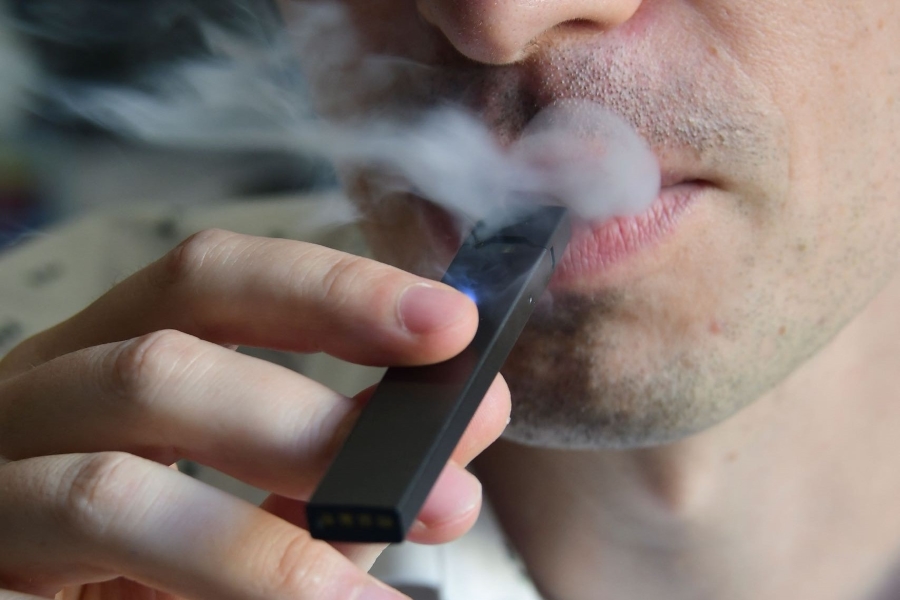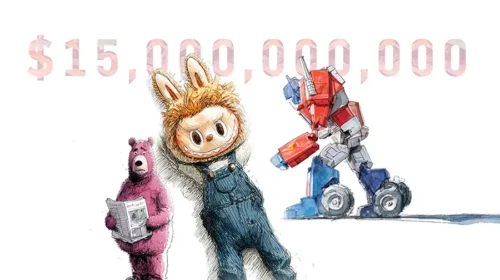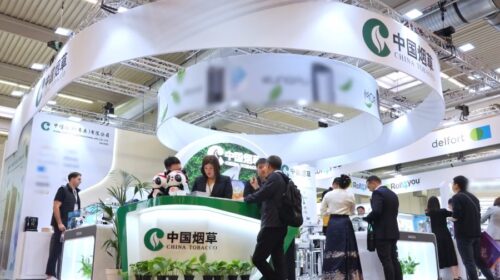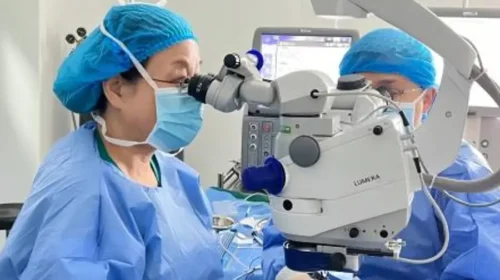RLX Burns Down, But Not Out, With New Licensing Announcement

China’s tobacco regulator allows the nation’s top vaping brand to manufacture at levels about 30% lower than its sales for last year
Key Takeaways:
- RLX has received a new manufacturing license as required under a new regulation announced earlier this year
- The license permits the company to produce rechargeable vaping devices at levels about 30% lower than its sales last year
By Doug Young
The latest announcement from RLX Technology Inc. (RLX.US), China’s equivalent U.S. vaping pioneer Juul, is giving investors a clearer picture on how new regulations in its home market will affect the company. Our analysis shows the company believes its business will drop by 30% or more this year under the new rules, which are part of a broader wave of initiatives to reduce or stamp out vaping around the world.
We’ll explain shortly how we got to the 30% figure, which was derived from a Friday announcement detailing a new business license RLX received under China’s new regulation rolled out earlier this year.
But truth be told, the new regulation could have a much more chilling effect on RLX, which controls more than half China’s vaping market thanks to a savvy marketing strategy that has seen its small kiosks become fixtures in malls and other locations throughout China. We suspect many of those shops could start to disappear in the year ahead as the company tries to control costs due to sharp sales declines associated with the new regulations.
Investors weren’t too excited about the latest announcement, which sparked a 7.8% decline in RLX’s shares on Friday. At their latest close of $1.89, the shares have lost 84% of their value from their $12 IPO price in January 2021. One might argue RLX and its peers are oversold if you believe there’s a future for vaping, even if such products become far less mainstream than they are now. But only time will tell if these products have a longer-term future or end up as just another discarded item in a long list of fad products that had their day in the sun, only to flame out later.
All that said, we’ll take a closer look at RLX’s latest announcement that said it received a new license from China’s tobacco regulator to manufacture its vaping products, including rechargeable and disposable vaping devices and cartridges used in those devices. All manufacturers were required to obtain such licenses under the new regulations.
Optimists might argue RLX was lucky to receive a license, since China often uses this kind of requirement to weed out smaller players with less reliable products and services. But given its status as the clear market leader, the denial of a license for RLX looked highly unlikely since the regulator had already signaled it would allow vaping companies to continue to compete with traditional tobacco products.
The new license will permit RLX to manufacture up to 15 million rechargeable vaping devices per year, as well as 6.1 million disposable devices and up to 329 million cartridges. By comparison, the company sold about 19.5 million rechargeable devices last year and 212.6 million cartridges, according to RLX’s latest annual report filed in April.
Scaling down
Some simple math will show the licensed capacity represents a 23% reduction in rechargeable vaping devices compared with last year’s sales, while the licensed capacity for cartridges is actually 35% higher than 2021 sales. But the first figure seems like the more important of the pair, leading us to say the company believes its sales are likely to decline about 30% under the new regulations.
“This license represents an important milestone in our strategic roadmap as we strive to comply with the new regulatory requirements in a timely manner. We believe that we are well-positioned to achieve compliance in our operations according to schedule,” said Chairman Wang Ying in the latest statement.
RLX’s revenue contracted by about 30% in the first quarter of this year to 1.7 billion yuan ($252 million) from 2.4 billion yuan a year earlier, which the company blamed on pandemic-related disruptions as virus-control measures affected its manufacturing base in the southern city of Shenzhen.
RLX didn’t provide any second-quarter guidance in its latest quarterly report, though Chinese consumer-facing companies in general have done miserably during the period due to even stricter pandemic controls that culminated with a citywide lockdown of Shanghai in the months of April and May. Three analysts polled by Yahoo Finance believe RLX’s revenue will fall about 30% this year to around 6 billion yuan from 8.5 billion yuan in 2021.
Besides the pandemic disruptions, the longer-term culprit behind the big decline is a new rule that took effect in May banning favored vapes and allowing companies to only sell tobacco-flavored vaping products. RLX’s U.S. counterpart Juul took a similar and even bigger hit in June when the U.S. Food and Drug Administration (FDA) banned all of the company’s products due to insufficient data about harmful chemicals that could leach out of its products.
Non-tobacco flavored products accounted for about 90% of China’s e-cigarette sales before the ban, meaning vaping companies in the country could take a huge hit if many of their users drop the habit when they are forced to use only tobacco-flavored products. A 90% sales decline seems unlikely, though we wouldn’t be surprised to see a dive of 50% or more when non-tobacco flavored vapes exit the market.
The bearish mood has crushed RLX’s price-to-earnings (P/E) ratio, which currently stands at a lowly 6. Juul isn’t publicly traded, though many people are already starting to write off the company due to the FDA’s aggressive stance against vaping. Other vaping companies Smoore International (6969.HK) and Huabao International (0336.HK) trade at much higher P/E ratios of 21 and 27, respectively, probably because the pair are vaping component makers with greater geographic and customer diversity than RLX.
At the end of the day, RLX’s future will be tightly tied to the development of vaping in the China market. The Chinese regulator appears to be taking a more tolerant attitude to vaping with its latest regulation, compared with the U.S. FDA’s more aggressive tack that looks aimed at stamping out the industry completely. If that’s the case, RLX could continue to survive in the future, though it would almost certainly be far smaller than its size at its peak in 2021.
To subscribe to Bamboo Works free weekly newsletter, click here






